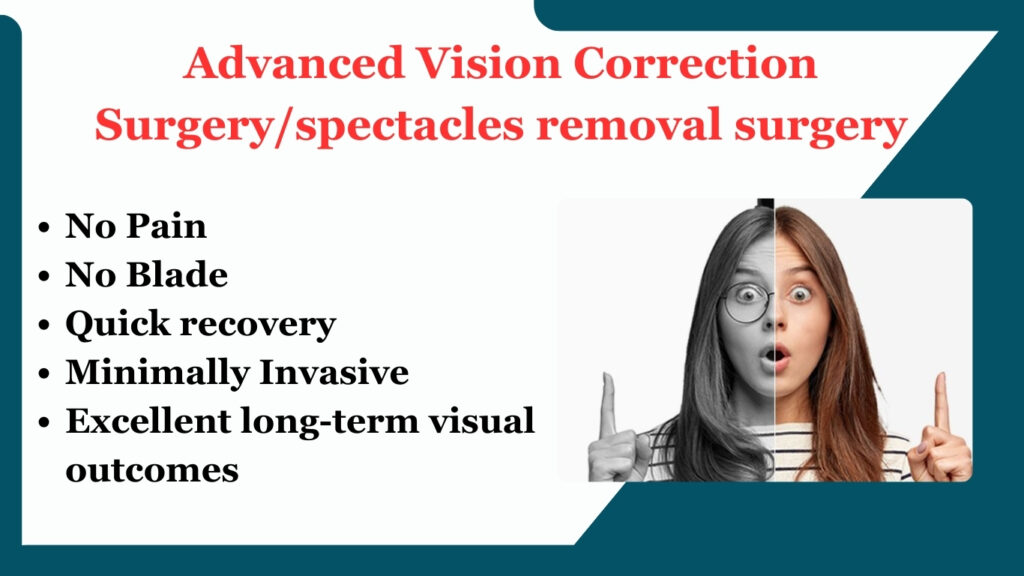

Vision correction surgery aims to correct common refractive errors such as myopia (nearsightedness), hyperopia (farsightedness), and astigmatism. These surgeries are designed to reduce or eliminate the need for glasses or contact lenses, significantly improving the quality of life for many patients. Various advanced procedures are available, each tailored to specific eye conditions, reshaping the cornea or replacing the lens to achieve optimal vision correction. Whether you are considering corrective eye surgery, eye correction surgery, or eye surgery for vision, these treatments offer effective solutions for clearer vision.
The ultimate goal of corrective surgery is improved vision and a more convenient and active lifestyle without dependence on corrective eyewear. With the right approach, corrective surgery eye procedures can help restore your natural vision, allowing you to live without the constant hassle of glasses or contacts.
Choosing Dr. Shanthi Niketh for vision correction or spectacles removal surgery means opting for unmatched expertise, access to cutting-edge technology, and dedicated patient care. Take the first step towards clearer vision and schedule your consultation today.

WhatsApp us